Brazil election 2022: what you need to know, latest polling - will Jair Bolsonaro or Lula da Silva win?


Brazil’s two main presidential candidates will face each other in a run-off vote after neither got enough support to win outright on Sunday (2 October).
With 98.8% of the votes tallied in the election, former president Luiz Inacio Lula da Silva had 48.1% support and incumbent president Jair Bolsonaro had 43.5% support.
Advertisement
Hide AdAdvertisement
Hide AdSo Brazilians will have to vote again to decide whether South America’s largest nation follows the populist path of its current leader, or takes a radical new direction - albeit with an old, familiar face.
The contest is between the current president Bolsonaro, who’s been dubbed the “Trump of the tropics”, and his challenger, Lula da Silva, the 76-year-old left-wing former president of the nation, known commonly as Lula.
After casting his vote, Lula said that he wanted to get the country "back to normal", while Bolsonaro said "clean elections" must be respected - after having repeatedly questioned Brazil’s electronic voting system, which has a strong track record.
While the results of the run-off will define Brazil’s immediate future, there are major global implications too - not least concerning the fate of the Amazon Rainforest.
Advertisement
Hide AdAdvertisement
Hide AdHere’s what you need to know about the Brazil presidential election, and what could happen next.
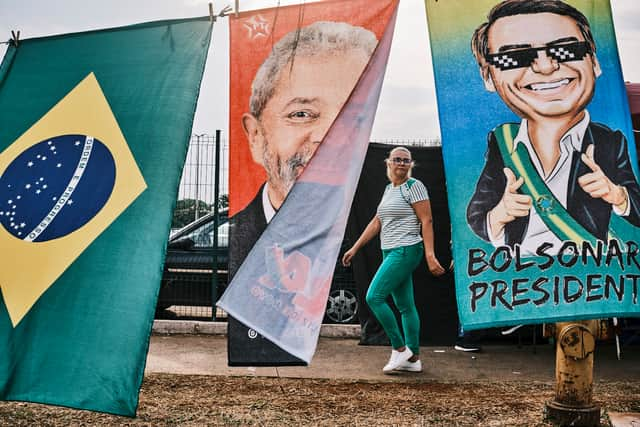

When is Brazil’s election and how does it work?
Brazil has a population of more than 212 million, making it the world’s seventh most populous country, and by far the largest nation in South America. Of this population, there are more than 156 million registered voters for the upcoming election.
Because neither candidate achieved 50% of the vote, it will now go to a run-off, or second round of voting.
This will be held on the last Sunday of October (this year that’s 30 October 2022). The candidate who receives the most votes in the second round will be elected.
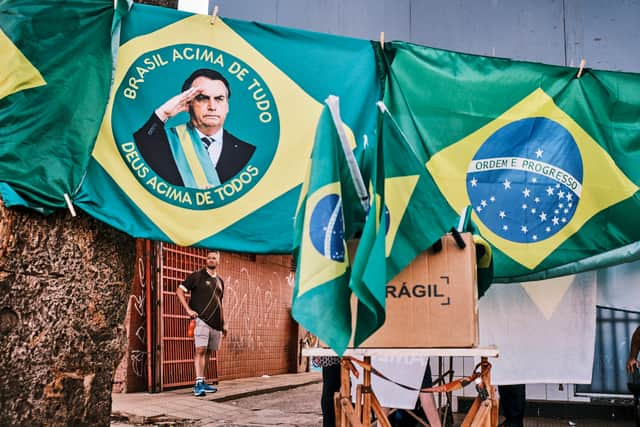

How do Lula da Silva and Jair Bolsonaro compare?
Advertisement
Hide AdAdvertisement
Hide AdWhile there are other minnows in the race, this is really a head-to-head between two major figures in Brazilian politics: Jair Bolsonaro and Lula da Silva.
It’s a stark choice for voters.
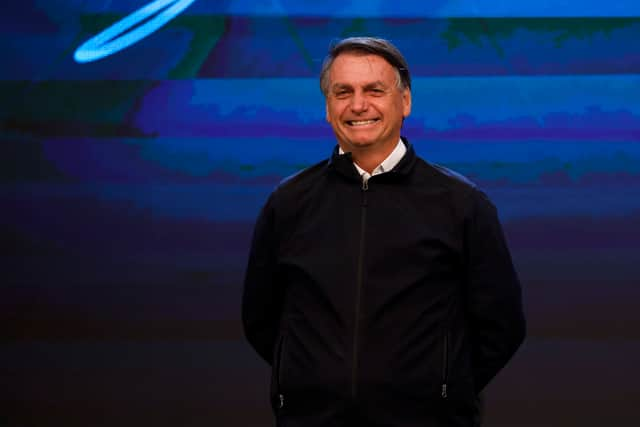

Elected in 2018, Bolsonaro came to power on the global wave of populism, with promises to grow the economy as leader of the Liberal Party.
But like Donald Trump in America, who he’s often been compared to, the former military officer’s far-right and polarising views on social issues, together with his indifference to the Covid pandemic which claimed almost 700,000 lives in Brazil, have seen his popularity wane.
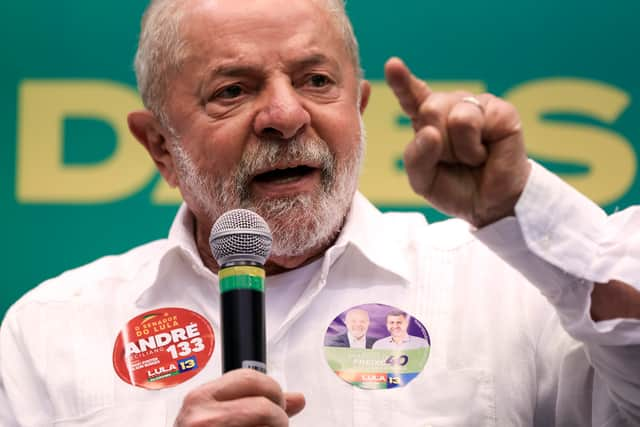

If Lula da Silva, leader of the Workers’ Party, is elected, it will be his third term in office, having previously served as Brazil’s leader from 2003 to 2006 and 2007 to 2011.
Advertisement
Hide AdAdvertisement
Hide AdThe former union boss is on the opposite side of the political spectrum to his main opponent, and has been an advocate for causes like ending hunger and improving workers’ rights. During his second term in office he was credited with bringing millions of Brazilians out of poverty and into the middle class.
In recent years, Lula has been embroiled in claims of corruption, and even spent 580 days in prison. The 12-year jail sentence for corruption and money laundering, handed down by controversial judge Sergio Moro, was thrown out by Brazil’s supreme court in 2019 and the charges were widely seen as politicised.
However, the whiff of corruption hasn’t left Lula, and many Brazilians still view him as responsible for the billions of reais stolen from the public finances during the Lava Jato (Operation Car Wash) scandal.
What are the key issues?
For Brazilians, the economy and standard of living is the biggest issue. During the pandemic, poverty increased in the country, and a study by FGV Social found that almost 30% of the population had a monthly income of less than R$497 (around £80).
Advertisement
Hide AdAdvertisement
Hide AdWith hunger returning to Brazil under Bolsonaro, Lula’s campaign promises a new tax regime that will allow for higher public spending.
Bolsonaro, like many populist leaders elsewhere in the world, champions socially conservative values, and has whipped up support among Brazil’s influential evangelical leaders.
He once said, “God above everything. There is no such thing as a secular state.” He has argued against equal pay for women, and has even advocated violence against gay men, saying, “If I see two men kissing in the street, I will beat them”.
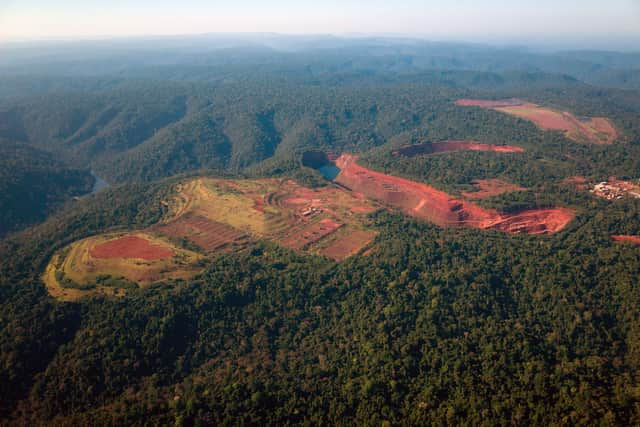

Why this matters for the rest of the world
This isn’t just about the future of Brazilian society. The nation is home to the majority of the Amazon, the world’s largest rainforest, which has become a battleground in the fight against climate change.
Advertisement
Hide AdAdvertisement
Hide AdUnder Bolsonaro, deforestation of the Amazon has advanced rapidly, after he weakened the environmental agencies within Brazil and pledged his support for agribusiness in the region. He does not subscribe to the scientific consensus on climate change, calling global warming a plot by "cultural Marxists".
The current president is also strongly against the rights of the indigenous tribes who live in the Amazon, and deadly violence has increased in the region during his reign.
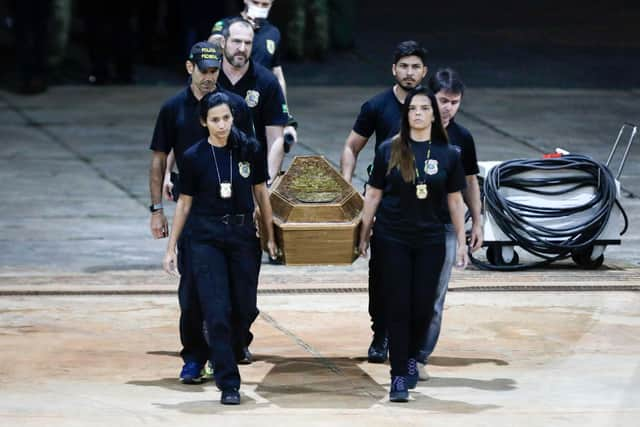

In June this year the bodies of British journalist Dom Phillips and Indigenous advocate Bruno Pereira were found in the remote Javari Valley, and the rate of killings has increased, with investigative journalists and environmental activists often in the firing line.
Lula da Silva, by contrast, has pledged to work to reduce carbon emissions and deforestation in the Amazon. This is a slight departure from his previous turn in office, where he was still resistant to legislation that would have required Brazil to phase out its fossil fuels.
Advertisement
Hide AdAdvertisement
Hide AdHowever, it’s Bolsonaro who is the main threat to the Amazon. If he loses the election it could lead to deforestation in Brazil falling by an astonishing 89% over the next decade, according to new analysis conducted for Carbon Brief.
That equates to 75,960 square kilometres of rainforest - an area roughly the size of Panama.
What do the polls say?
Before the election itself, Lula da Silva took a big lead, with the last polls suggesting he was within the margin of error for a victory in the first round.
The last Datafolha survey published on Saturday (1 Oct) found that 50% of respondents who intended to vote for a candidate said they would vote for Lula, compared to 36% for Bolsonaro.
Advertisement
Hide AdAdvertisement
Hide AdHowever, Lula fell short of the threshold in the official results.
Bolsonaro pushed through a 50% temporary rise in welfare payments to Brazil’s poorest in the run-up to the election. This was widely seen as an attempt to buy votes, but the move does not appear to have had a substantial impact on his polling.
Will Bolsonaro accept the result if he loses?
There are legitimate fears that Bolsonaro’s supporters may not accept the result of the election if he loses out to Lula. The current president has made several allegations of electoral fraud already, despite Brazil having a rigorous system with a strong track record.
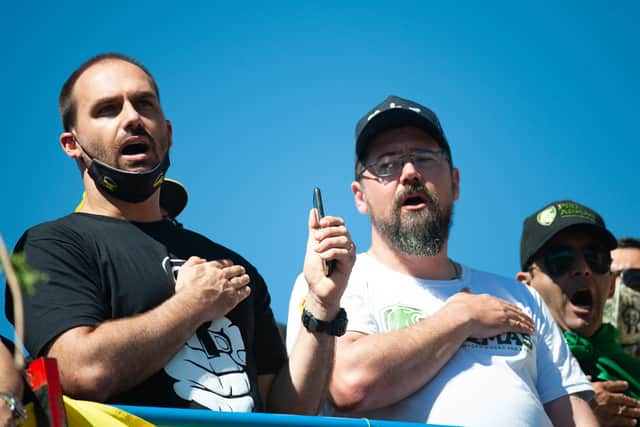

It has also been noted that Eduardo Bolsonaro, the president’s son, was present in the United States during the events of 6 January 2021, when Trump supporters stormed the US Capitol building in Washington D.C. following his election defeat to Joe Biden.
Advertisement
Hide AdAdvertisement
Hide AdWhile he recently said he would quit politics if he loses, Jair Bolsonaro later told a Brazilian broadcaster that if he wins less than 60% of the vote in the first round of voting, “something abnormal has happened”.
If, as expected, Bolsonaro does lose, it will be more evidence that the wave of populism and ‘strong men’ leaders is starting to subside.
It will also be a sign that South America is starting to turn to the political left again. Gustavo Petro in Colombia, Gabriel Boric in Chile and Pedro Castillo in Peru are among the left-leaning leaders in the region to have recently assumed power.
The next month will be pivotal for Brazil, South America and the world.
Comment Guidelines
National World encourages reader discussion on our stories. User feedback, insights and back-and-forth exchanges add a rich layer of context to reporting. Please review our Community Guidelines before commenting.
